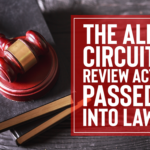In the movies, a courageous insider that blows the whistle on fraud and other forms of wrongdoing typically has their moment in the spotlight, perhaps in court or in a gaggle of news reporters, in which they triumphantly bring criminal actions out into the open, exposing the powerful antagonists who had spent the whole movie trying to stop them. While some people might dream of their own movie moment, most potential whistleblowers have little to no interest in the spotlight, and are simply seeking to correct wrongs while collecting the financial reward they are owed for their efforts. Thus, one of the main concerns these individuals have at the beginning is having to go to court – again, not an inviting thought for most people – in order to win their whistleblower reward. In most cases, however, testifyin in court is not necessary.
Many Whistleblowing Matters Happen Outside of the Court System
“Whistleblowing” is a generic term that can refer to any type of situation in which an insider (or other person who is able to obtain or even deduce inside information) brings forward instances of wrongdoing to authorities. Following that, there are a variety of whistleblower legal actions which can result in a whistleblower reward, and many do not involve the court system at all.
For example, the SEC Office of the Whistleblower collects information from individuals who have tips related to securities fraud and other securities law violations, and then pays those individuals a reward of between 10% and 30% on the culmination of a successful action based on the tips. In such matters, the enforcement actions are generally resolved through negotiation with the wrongdoer outside of court, and the informant’s identity may remain confidential through all aspects of the process. The SEC has paid well over $100 million to whistleblowers since its genesis in 2010.
Likewise, the IRS and CFTC have whistleblower offices that pay informants rewards in matters that are resolved largely outside of the court systems.
FCA Qui Tam Cases Are Typically Resolved Without a Trial
False Claim Act (FCA) cases, or qui tam cases as they are often called, do involve filing a complaint with a federal court which details the fraud that a company or other entity has perpetrated against the federal government, often through presenting the government with false invoices, e.g. in procurement fraud or Medicare/Medicaid fraud.
When a qui tam complaint is filed, however, the complaint will be sealed and the identify of the whistleblower will remain confidential while the Department of Justice investigates the matter (and, generally, the company being investigated will not even know that it is under investigation).
At a later point, the information may be unsealed, but, if the case has survived that long, that often means the person who brought the case is in a good place with regard to reaching a successful outcome. Most companies being investigated by the federal government are eager to resolve the matter without going to trial – which can be expensive and embarrassing – and so negotiating a settlement with the federal government (which will include a reward for the whistleblower) is a common outcome, meaning a trial may never occur.
Speak to an experienced whistleblower attorney about the options available in your situation.
Reach Out to an Experienced Whistleblower Attorney Today
At Kreindler & Associates, our experienced whistleblower attorneys will work with you every step of the way to determine your appropriate course of action, protect you from retaliation, and collect your much-deserved reward. All of our consultations are 100% confidential. Contact us today for an evaluation of your allegations.




